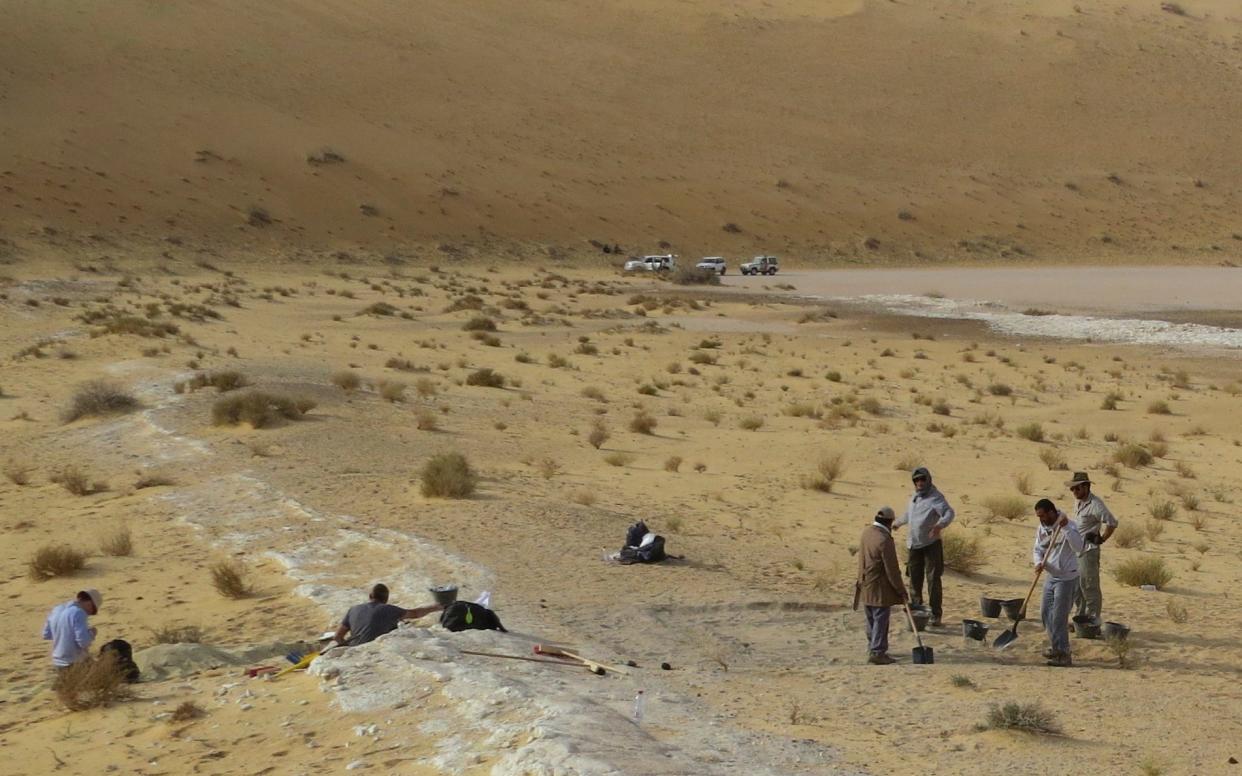Ancient human finger bone found in Saudi Arabia ‘could rewrite human history’

A fragment of a human finger bone dating back up to 90,000 years has been found in the Saudi Arabian desert – and it could rewrite the history of mankind’s journey out of Africa.
The bone fragment, around an inch long, has been undiscovered for up to 90,000 years, in an area which was once a grassland teeming with wildlife.
Scientists previously believed that humans left Africa in a single migration 60,000 years ago – but the new find challenges that.
Researcher Michael Petraglia of the Max Planck Institute for the Science of Human History in Germany says, ‘This supports a model not of a single rapid dispersal out of Africa 60,000 years ago, but a much more complicated scenario of migration.

‘This find, together with other finds in the last few years, suggests … Homo sapiens is moving out of Africa multiple times during many windows of opportunity during the last 100,000 years or so.’
MOST POPULAR TODAY ON YAHOO
Shocking CCTV of two ‘cowards’ carrying out fatal attack on man in Trafalgar Square
Neighbours of Richard Osborn-Brooks tear down ‘shrine’ to burglar Henry Vincent
Millions of ‘illegal’ Mersey Gateway Bridge toll charges could be refunded
‘Evil monster’ who murdered ex-girlfriend’s partner in a crowded travel agency jailed for 26 years
Petraglia said that the find shows that people were crossing the interior of the land, not along the coast.
University of Oxford archaeologist Huw Groucutt said, ‘The big question now is what became of the ancestors of the population to which the Al Wusta human belonged.
‘We know that shortly after they lived, the rains failed and the area dried up. Did this population die out? Did it survive further south in Arabia, where even today there are mountainous areas with quite high rainfall and coastal regions which receive monsoonal rains?
‘Or did the drying environment mean that some of these people were ‘pushed’ further into Eurasia, as part of a worldwide colonisation?’

 Yahoo News
Yahoo News 

